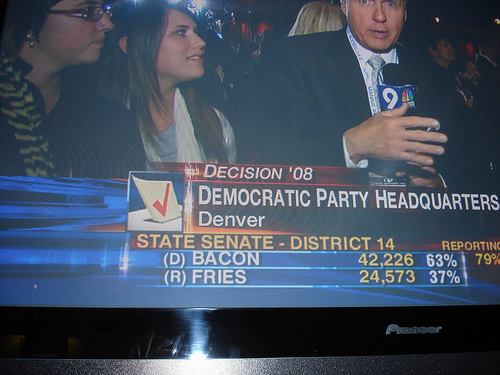Via Cosma, Canadian historian Rob MacDougall on a characteristic American tendency to see radical social change as the inevitable expression of values expressed and promises made at the country’s inception:
“We’ve come to our nation’s capital to cash a check,” said Martin Luther King Jr. at the March on Washington for Jobs and Freedom. … King went on: “When the architects of our republic wrote the magnificent words of the Constitution and the Declaration of Independence, they were signing a promissory note … a promise that all men, yes, black men as well as white men, would be guaranteed the inalienable rights of life, liberty and the pursuit of happiness.”
And here Sancho [Panza] or Sacvan [Bercovitch] whispers to the guy standing next to him, “Were they? Really? If we went back in time and asked the architects of the republic–Jefferson and Madison and Washington and the rest–did you mean for this to apply to your slaves too, would they agree? … Because it would have saved a lot of trouble if they’d spelled all this out in 1789.”
The black belt rhetorical jiu jitsu of the “I Have A Dream” speech is that King pulls it off. He convinced the better part of a nation that dismantling segregation was not so scary, not so radical, but really what they’d all meant to do all along. They just hadn’t gotten around to it, like the laundry I need to sort, or those slaves Jefferson never quite got to freeing. … And this is an old and hallowed American trick. On July 4th, 1852, Frederick Douglass blistered the ears of his white audience with prophesy … Douglass reveals that, “interpreted as it ought to be interpreted,” the Constitution is in fact “a GLORIOUS LIBERTY DOCUMENT.” He embraces and celebrates the Constitution as a bulwark against slavery. … At Seneca Falls in 1848, Elizabeth Cady Stanton cribbed Jefferson’s words for her Declaration of Rights and Sentiments, the intimation being that “of course” the patriarchs of 1776 must have intended equal rights for women. … And so on and so on down through history, with every kind of American reformer looking backward to move forward, couching their goals as nothing more radical than America’s alleged founding ideals.
